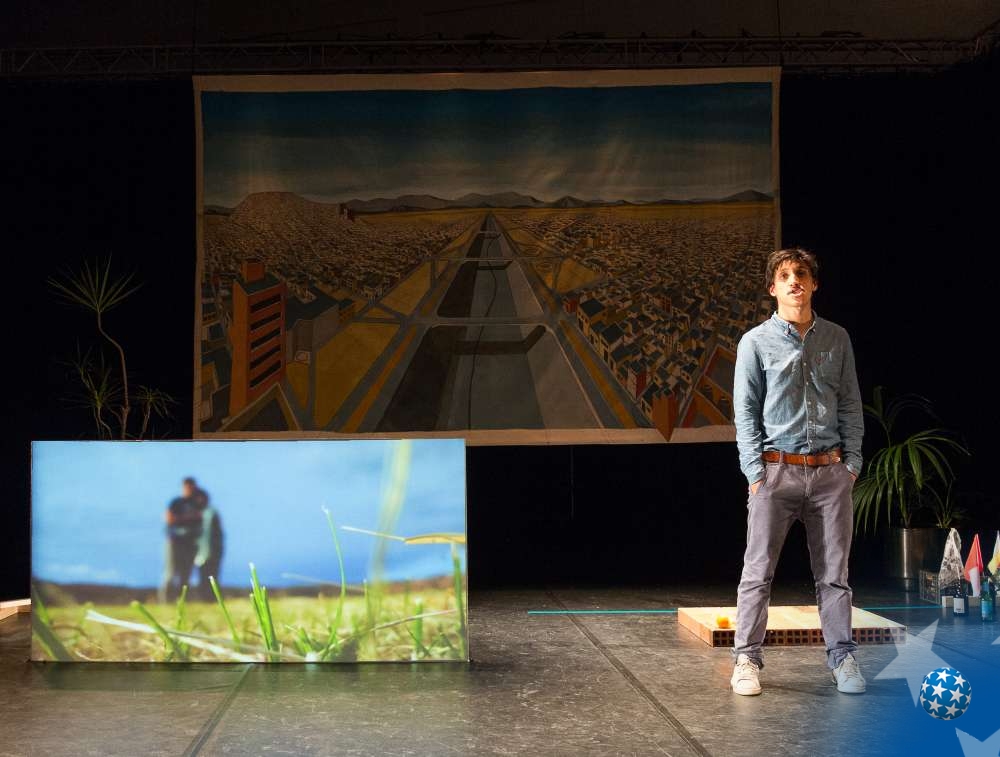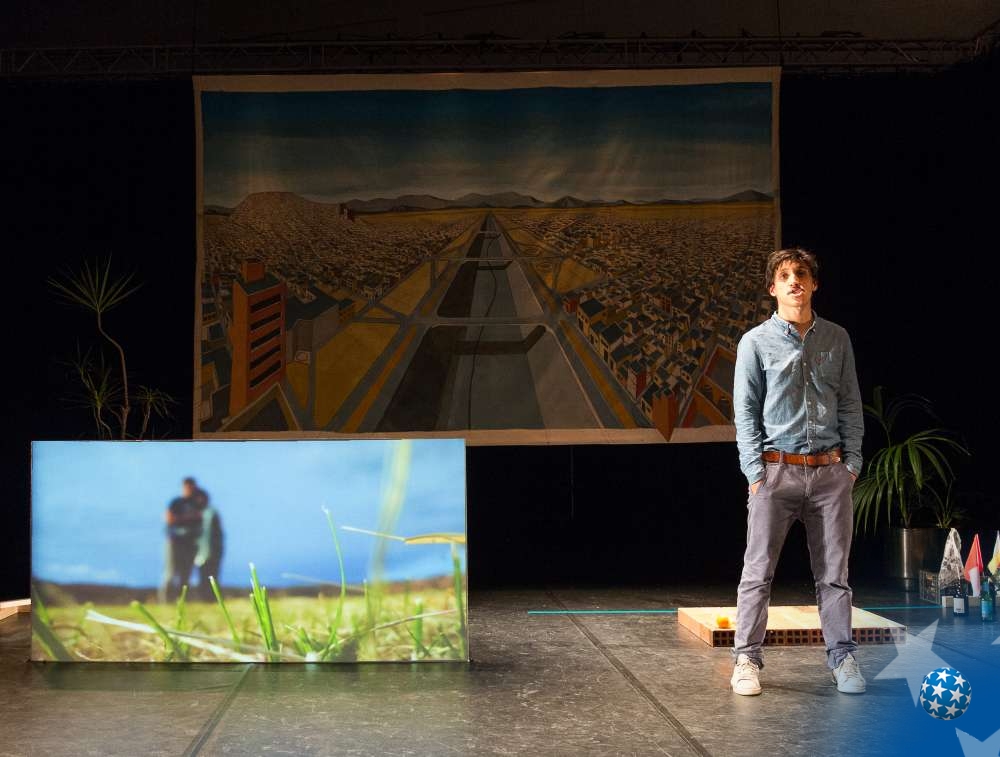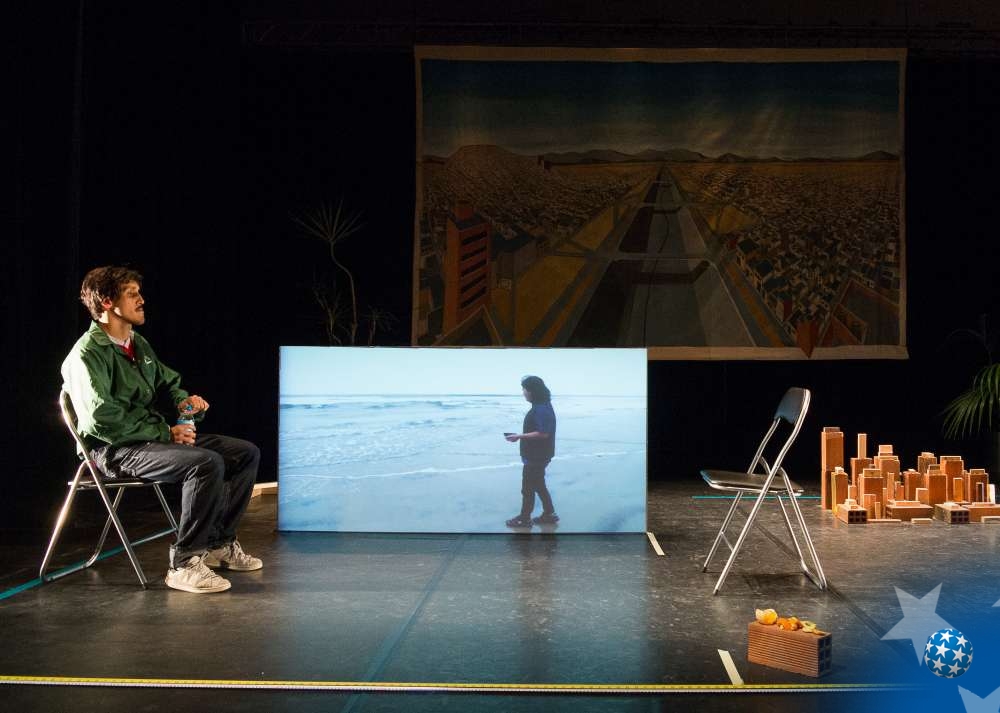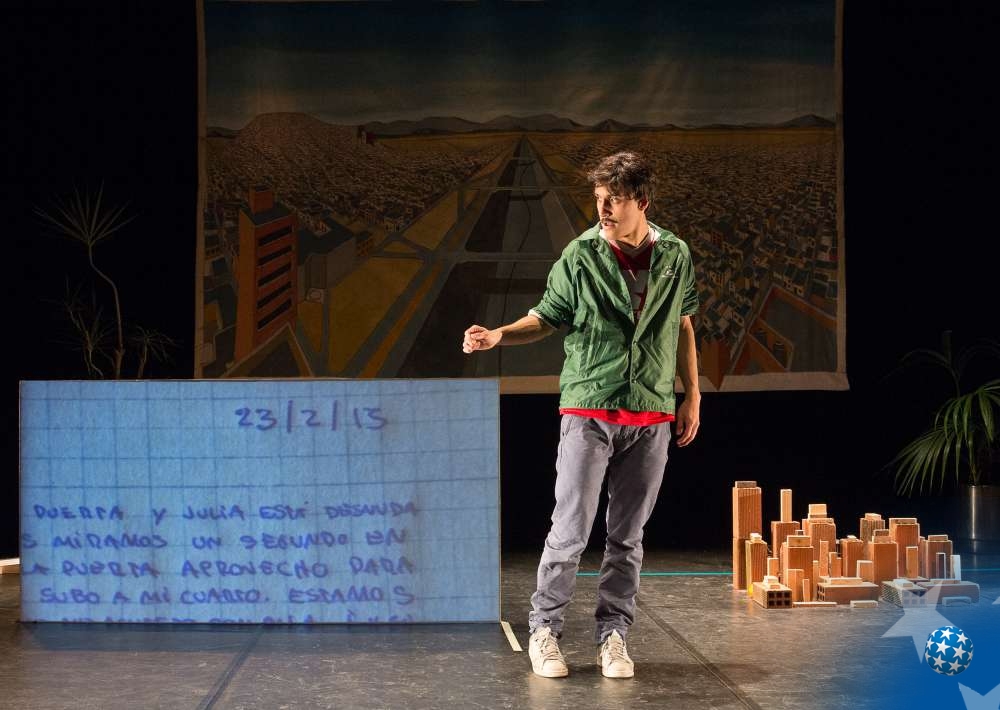Curators’ Statement
Tijuana is a solo performance by the famous Mexican actor and author so far known as Lazaro Gabino Rodríguez; namely, he treats his own life as a performance, as a process of continuous transformation of identity, which is reflected both in name changes and in the changes of physical appearance. Such artistic and life poetics is also in the core of his Tijuana project. Having assumed a false identity, he moved to the Mexican city of the same name, rented a small room in one of the favelas, and got a job in a local factory, determined to check whether a Mexican worker could live on the minimum wage (converted into EU currency, his daily wage was around one euro). This performance act, whose form can be defined as a "lecture-performance", represents Rodriguez's performative archiving and reconstruction of the experiment that he has tried to implement in real life.
About the Production
Tijuana is a theater piece based on an experiment made by Lázaro Gabino Rodríguez. For six months Rodríguez abandoned his life in Mexico City to work on an assembly line in a Tijuana factory on the US border. He passed under the false identity of “Santiago Ramírez”, wore a fake moustache, had no contact with friends, family or colleagues and earned the legal minimum wage which, according to the Mexican constitution, “should cover the normal material, cultural and social needs of the head of a family and facilitate the compulsory education of his children”. In reality it’s almost impossible to scrape by on for a single, malnourished sleepwalker like “Santiago Ramírez”. It is a role which Rodríguez initially slips into without raising any suspicions and for which, like several million Maquiladora workers, the merciless exploitation of his physical strength and vitality is the price exacted for free trade and company profits in the Mexican border region. Soon, however, he becomes plagued by ethical considerations for his co-workers and the family of his landlord, all of whom trust the worker “Santiago Ramírez” although they are actually being used by a middle-class artist as research subjects for his theatre play.
Tijuana is the part of a large-scale political and social panorama entitled Democracy in Mexico (1965-) which is designed to be told in 32 parts - one for every Mexican state.
The Authors
LAGARTIJAS TIRADAS AL SOL is a flock of artists. They work on stage, make books, radio, videos and learning processes.
Since 2003, Lagartijas started developing projects as a mechanism to link work and life, to erase and trace frontiers. Their work seeks to create narratives upon events from the reality. It has nothing to do with entertainment, it’s a space to think, articulate, dislocate and unravel what the everyday life fuses, overlooks and presents us as given.
Things are what they are, but they can also be another way.
Lagartijas have presented their work in almost all the states of the Mexican Republic, they have made performances in independent venues, festivals, state theaters and universities. Overseas, among many others, they have worked in Kunstenfestivaldesarts, Brussels; Schaubühne, Berlin; FIBA, Buenos Aires; Wiener Festwochen, Vienna; Festival d‘automne, Paris; Theater Spektakel, Zurich; FTA, Montreal; HAU, Berlin; Kammerspiele, Munich; Santiago a mil, Santiago; Bienal de teatro, Sao Paulo; DeSingel, Antwerp; Festival internacional, Caracas; FAEL, Lima; Belluard international, Fribourg; Cena Contemporánea, Brasilia; TBA, Portland; FIAC, Salvador de Bahiá; Festival de otoño, Madrid; RADAR, LA; Temporada alta, Girona; Dialog Festival, Wroclaw; Centro cultural España, Guatemala; Bad, Bilbao; Inteatro, Ancona; TNT, Terrasa; Mess, Sarajevo; Fusebox, Austin; Noorderzon, Groningen.
Their projects have been developed from three lines of research: the auto / biography, political history in Mexico and the present. All their projects work the tension between fiction and reality.
From the Reviews
Beyond these rich layers of thematic consideration, the acting and staging of the play were outstanding. First of all, Rodríguez moved deftly from his basic role as himself (?) as narrator to the roles of half a dozen other characters in his story, expertly changing voices, attitudes, and actions to match them.
…
In short, Tijuana was a visual and thematic tour-de-force that gave spectators plenty to think about at multiple levels.
Timothy G. Compton, Latin American Theatre Review
Tijuana touches on issues of class, equity, and economics. But it is ultimately a performance about a performance. As Rodríguez questions his own motives for wanting to take on the role of Santiago Ramírez, he asked: "Is it possible to represent another?"
In Rodriguez's case, the answer is yes. The actor is a captivating performer — able to convey the deeply human in unsentimental ways.
Carolina A. Miranda, LA Times





